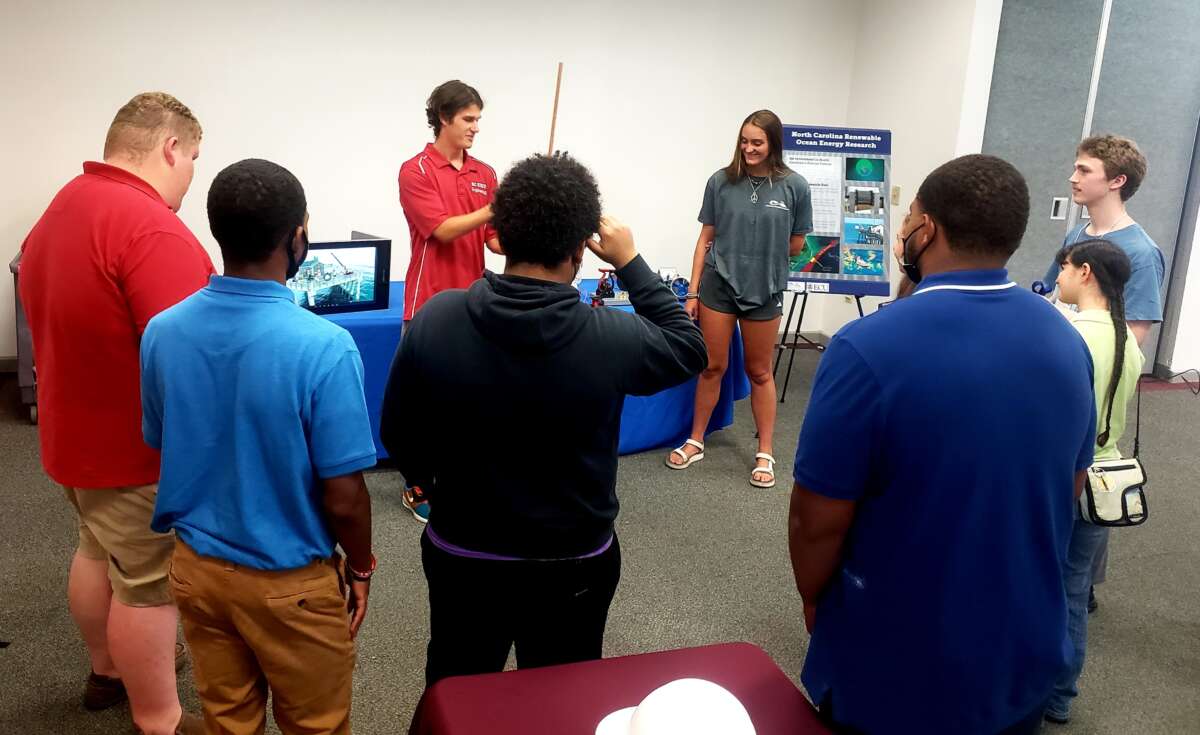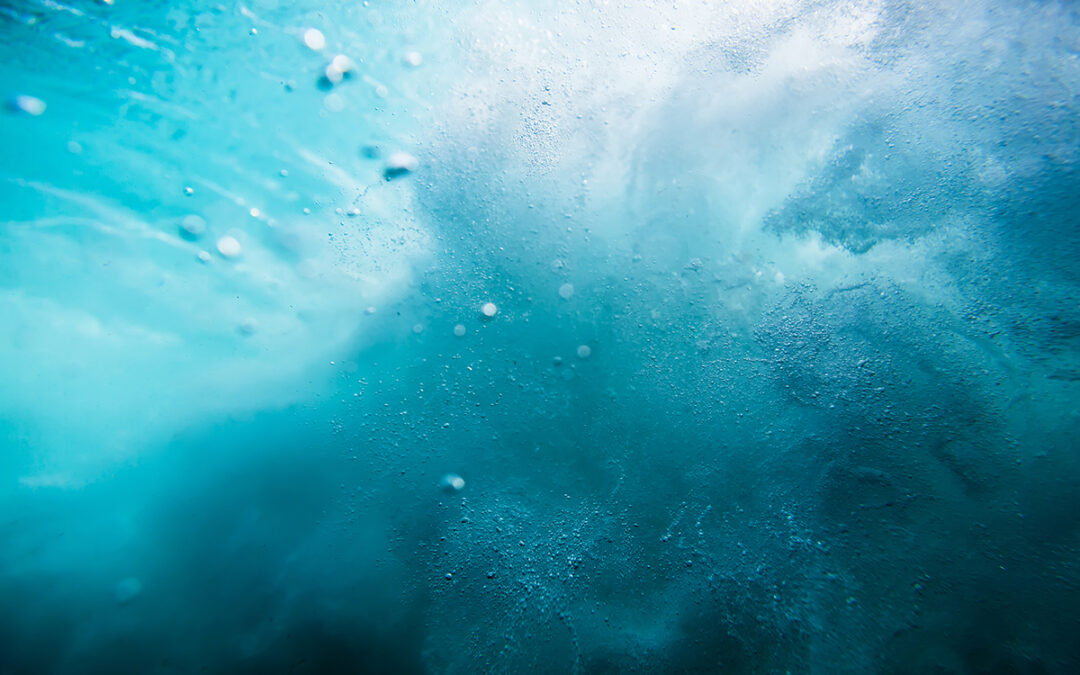An internship reflection by Vega Sproul.
Over the past twelve weeks, I have had the pleasure of interning at CSI under George Bonner, Director of the North Carolina Renewable Ocean Energy Program (NCROEP).
My role under George was ultimately to ultimately learn as much as possible about different coastal disciplines. I got involved in as many different projects as possible and absorbed as much as I could along the way. One of my biggest takeaways was learning about the potential for North Carolina’s blue economy. Blue economy is defined as the sustainable use of ocean resources for renewable energy, economic growth, and improved livelihood. I learned about how coastal communities could sustainably implement desalination systems, microgrids, and even electric ferries into their infrastructure. I watched a marine hydrokinetic kite be tested at NC State, taught young students about the fundamentals of renewable energy, designed a renewable energy interactive display, and so much more. From the start, George pushed me to learn as much as I possibly could during my internship, and sometimes it feels like I learned more in these twelve weeks than the past two years combined.

During my internship, I also had the opportunity to represent NCROEP with fellow intern Cora McQuaid at a 4H Electric Congress event. We talked to students about renewable energy, the program, and the blue economy.
Although George was my supervisor, I really worked for the entire NCROEP team, which includes Dr. Mike Muglia and Dr. Lindsay Dubbs. Under Mike, I learned about physical oceanography, the processing and collecting of wave spectra data, and even quantum mechanics. I found collecting and processing wave spectra data from local buoys to be particularly useful in improving my programming skills. I now know how to utilize an Application Programming Interface (API), characterize wave spectra data, and process Conductivity, Temperature, and Depth (CTD) measurements from the ocean.

The YSI probe went over the side of the boat into the water to measure parameters such as salinity, pH, temperature and dissolved oxygen at specific sites.
With Lindsay, I got the opportunity to take various trips out into the field. I was able to participate in two trips to the Gulf Stream where I learned how to operate a YSI meter, complete nitrogen fixation experiments, and how to prevent seasickness (the key is to eat salty things). I was also able to take biofouling samples from the CSI-maintained Spotter buoys at Jennette’s pier. These trips out into the field fortified my resolve in pursuing a career to study the coastal environment. Although getting seasick was not a lovely experience, the time I spent studying the coast outdoors was valuable in teaching me the importance of monitoring and protecting the environment.
Mike and Lindsay were also great to work with because they were clearly very passionate and invested in what they were researching. Whenever we started talking about anything oceanography-related, it was like something switched on inside of Mike. He started talking faster and with this gusto that was very enjoyable to watch and learn from. Then, when Lindsay taught me about the importance of nitrogen-fixation, I could just tell she really cared about what she was talking about. She started from the atomic level and thoroughly worked up to the macroscopic level, demonstrating both her expertise and passion on the matter. Learning from the two was made easy and fun because no matter the question, they always took care in ensuring I understood what they were teaching me.
In summary, this internship experience allowed me to truly learn. It has given me a hands-on learning experience that I have truly missed this past year and a half, and I will always cherish the time I have had here at CSI with the NCROEP team.



 Based at the Coastal Studies Institute (CSI), the North Carolina Renewable Ocean Energy Program (NCROEP) advances inter-disciplinary marine energy solutions across UNC System partner colleges of engineering at NC State University, UNC Charlotte, and NC A&T University. Click on the links below for more information.
Based at the Coastal Studies Institute (CSI), the North Carolina Renewable Ocean Energy Program (NCROEP) advances inter-disciplinary marine energy solutions across UNC System partner colleges of engineering at NC State University, UNC Charlotte, and NC A&T University. Click on the links below for more information. ECU's Integrated Coastal Programs (ECU ICP) is a leader in coastal and marine research, education, and engagement. ECU ICP includes the Coastal Studies Institute, ECU's Department of Coastal Studies, and ECU Diving and Water Safety.
ECU's Integrated Coastal Programs (ECU ICP) is a leader in coastal and marine research, education, and engagement. ECU ICP includes the Coastal Studies Institute, ECU's Department of Coastal Studies, and ECU Diving and Water Safety. The ECU Outer Banks campus is home to the Coastal Studies Institute.
The ECU Outer Banks campus is home to the Coastal Studies Institute.

